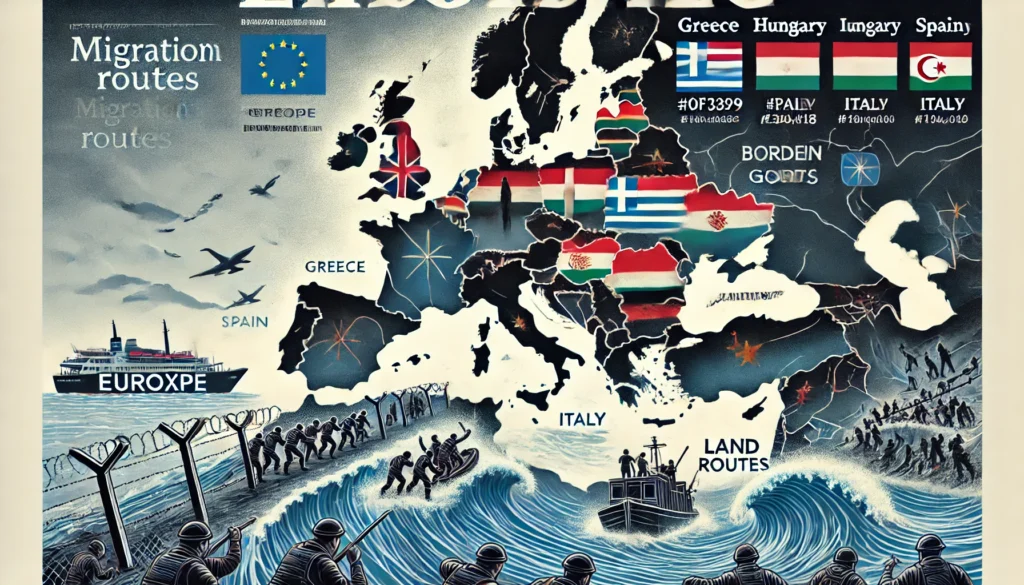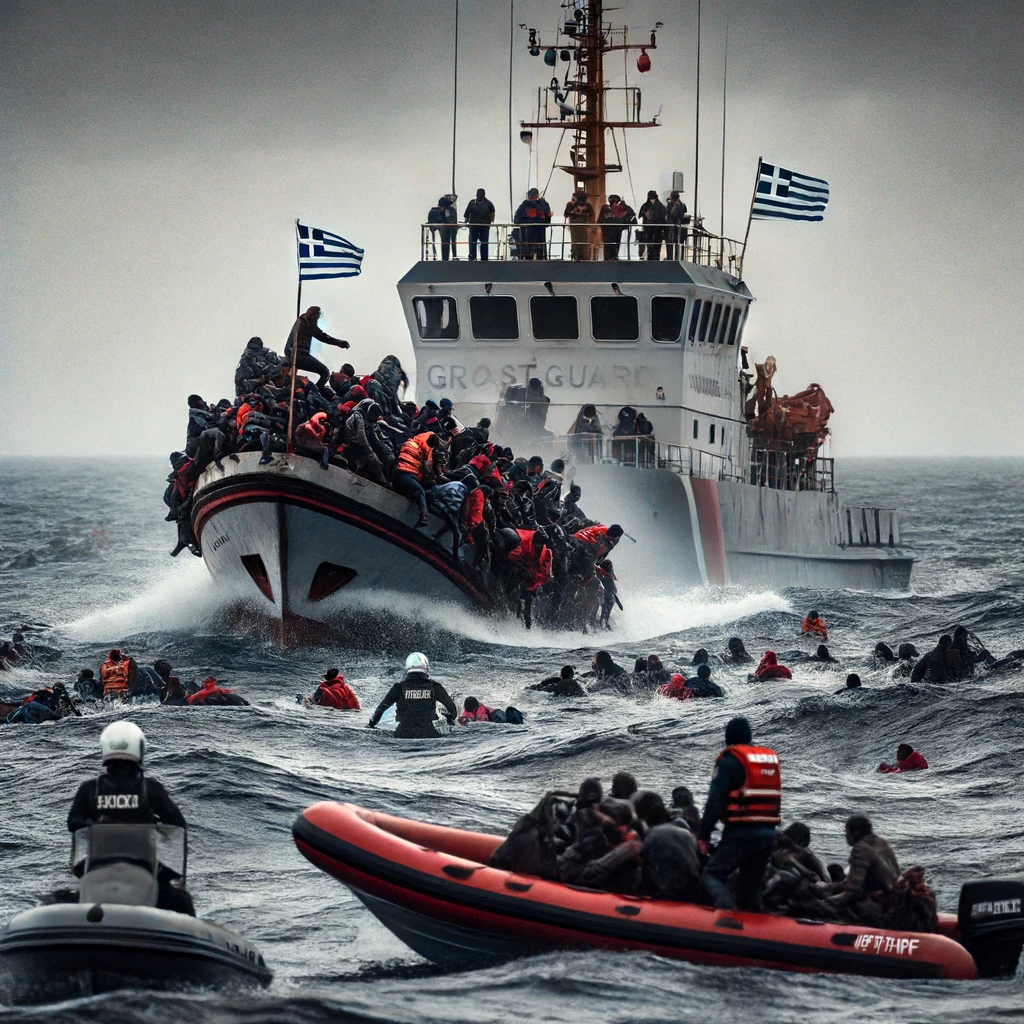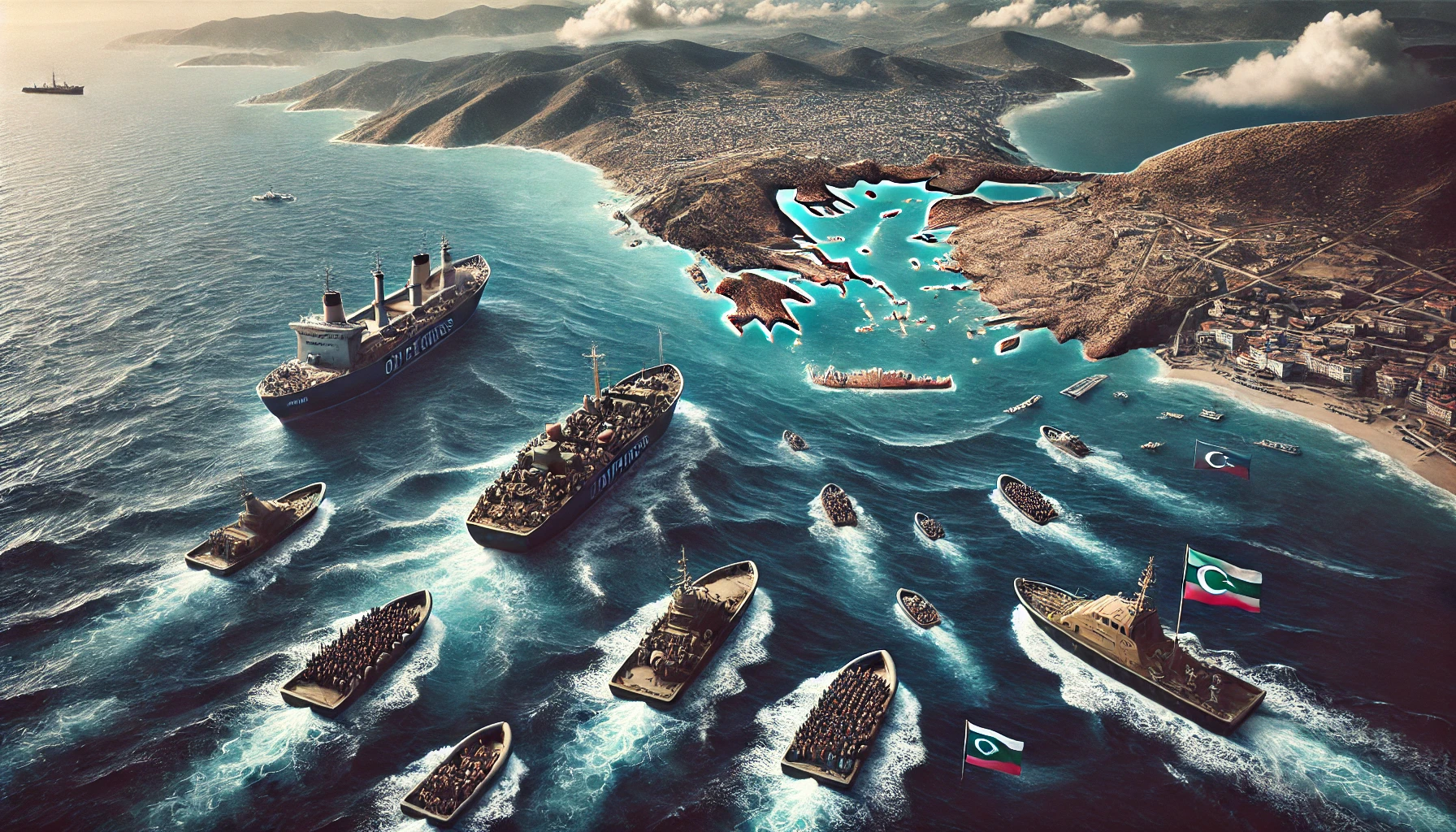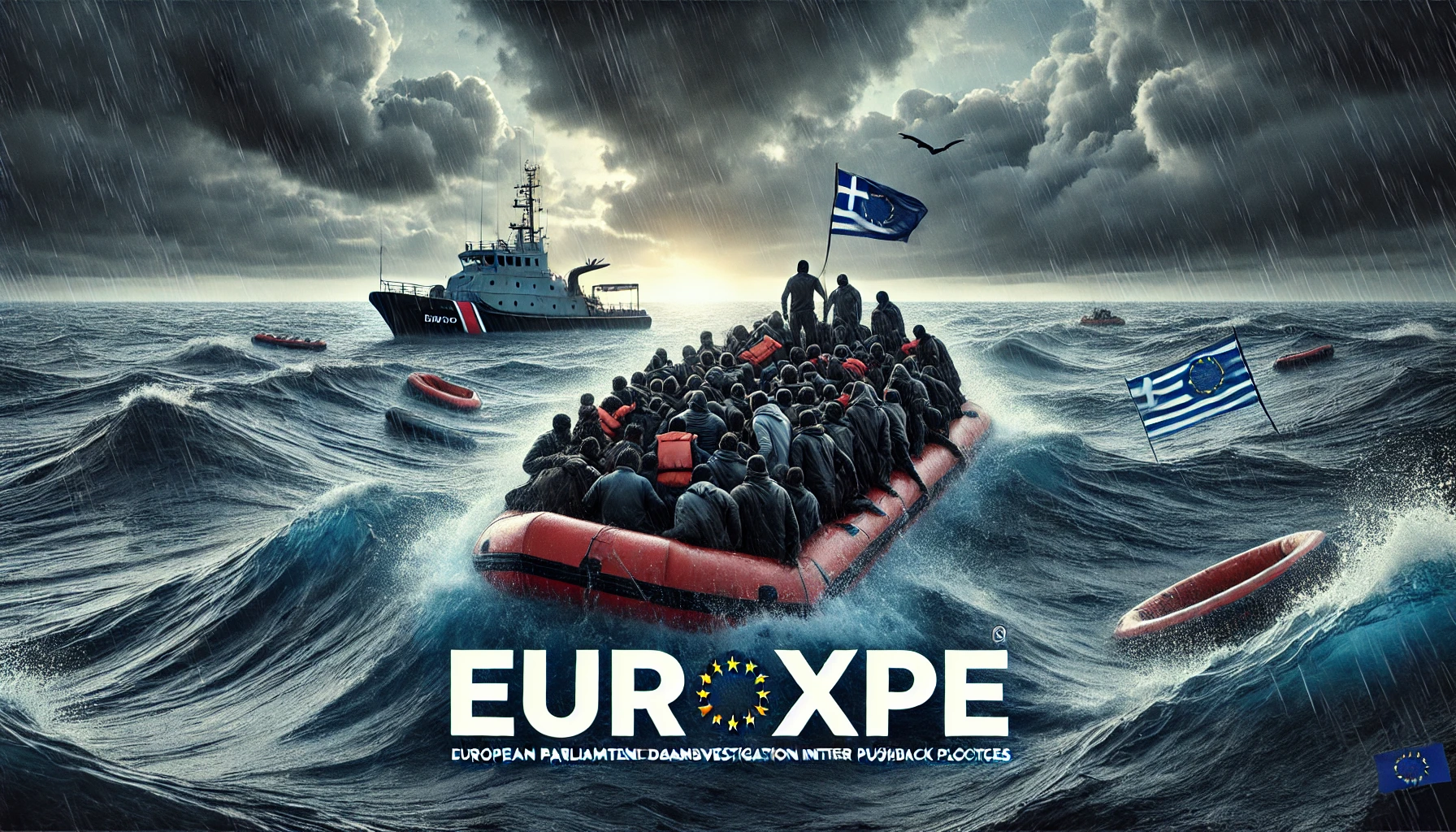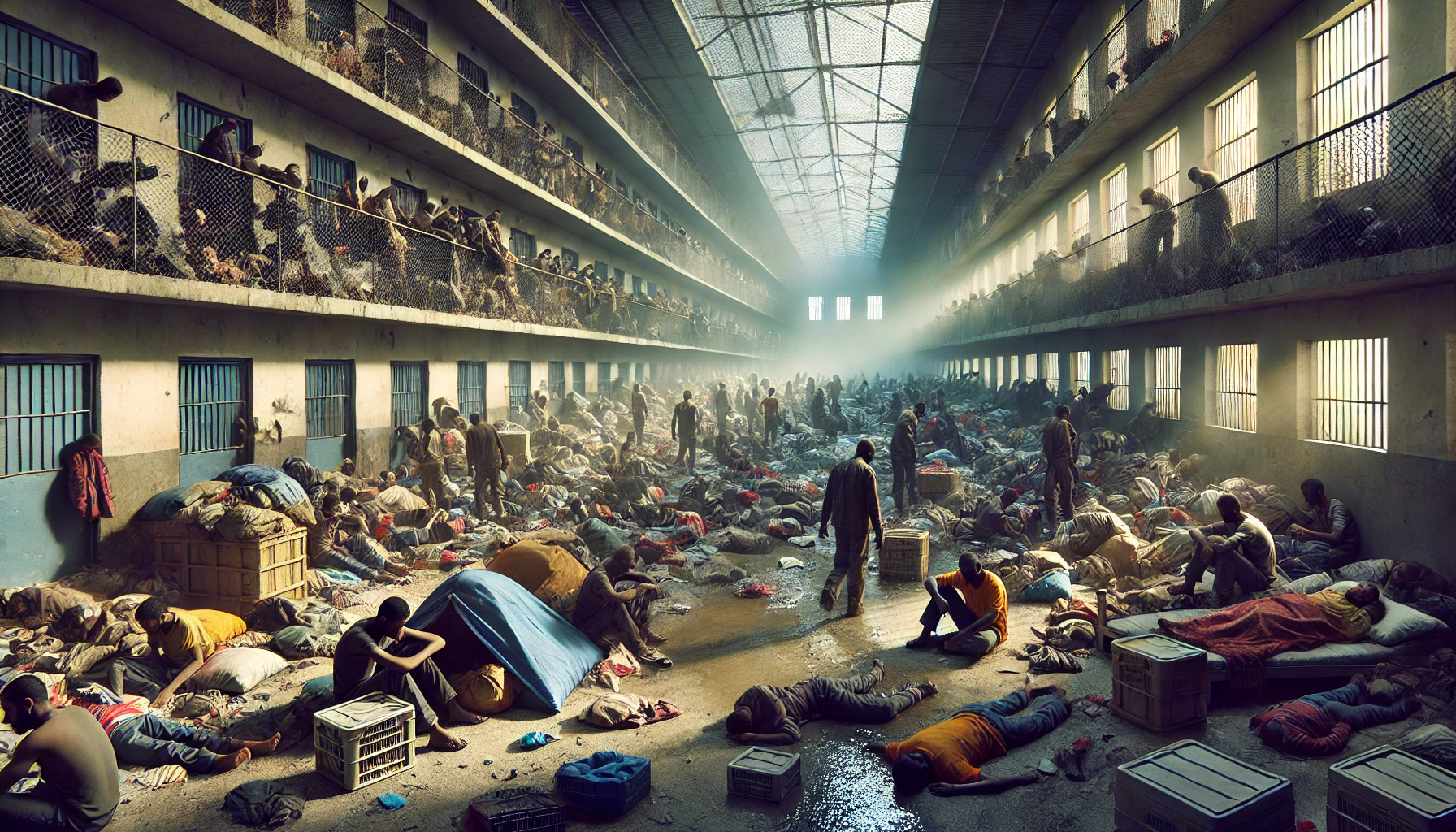Recent allegations against the Greek coastguard have intensified scrutiny on European border agencies for forcibly returning migrants. The BBC’s investigation, based on witness statements, suggests these actions have led to numerous deaths at sea. Greece’s Maritime Ministry disputes these claims but has tasked the National Transparency Authority to review the evidence.
For years, European border authorities have faced accusations of employing illegal pushback practices. These involve forcibly sending back migrants crossing borders without allowing them to apply for asylum. Such actions contravene multiple international laws, including the Geneva Refugee Convention, the European Convention on Human Rights, and EU law.
Here’s an overview of the EU countries facing such allegations:
Greece
A significant migration route into the European Union passes from neighbors into Greece, putting immense pressure on Greek border authorities. Various media outlets and human rights organizations have documented numerous violations of international refugee laws, both in the Aegean Sea and along the land border. Despite these reports, officials often remain silent or outright deny these claims, occasionally announcing investigations.
A tragic incident underscores these allegations: a year ago, a fishing boat named Adriana capsized near Pylos, Greece, with over 700 migrants on board. Only 104 survived. Human rights organizations accuse the Greek coast guard of attempting to tow the distressed boat into Italian waters, exacerbating the tragedy.
Croatia
Croatian border guards have been accused of forcibly returning migrants to Bosnia-Herzegovina. Many alleged victims report being beaten, robbed, and humiliated by officers. Croatia’s government consistently rejects these accusations, maintaining a firm stance against such claims.
Hungary
The Hungarian government openly supports the forced deportation of migrants to Serbia, bypassing the opportunity for these individuals to apply for asylum. This policy is part of Hungary’s strict approach to immigration, which has been widely criticized by international observers and human rights groups.
Spain
Spain faces similar allegations, with thousands of refugees arriving via two main routes: from the west coast of Africa to the Canary Islands, and from Morocco to the Spanish exclaves of Ceuta and Melilla in northern Africa. Reports indicate that migrants are often forcibly deported from Spanish soil to Morocco, particularly from Ceuta and Melilla, in violation of international law. Such actions have resulted in numerous deaths, especially during mass attempts to storm border fences.
Italy
Italy is another focal point for migrant routes, particularly from northern Africa to the island of Lampedusa. Italian authorities are frequently criticized for their harsh treatment of migrants, poor conditions in reception camps, and hasty deportations without legal recourse. Human rights organizations also accuse Italy of criminalizing aid organizations and their workers, especially those involved in sea rescue missions. The Italian government declared a six-month state of emergency in spring 2023 due to a surge in migrant arrivals.
Frontex
Frontex, the European Union’s border and coast guard agency, monitors the external borders of EU countries part of the Schengen Agreement. The agency has faced accusations of illegal pushbacks since at least 2009, with claims that it boarded refugee boats in the Atlantic and sent them back to Senegal. Frontex agents are also said to have forcibly turned back refugees in the Mediterranean, abandoning them at sea.
Frontex is frequently accused of tolerating human rights violations by national border authorities. In 2019, reports based on internal documents revealed that Frontex officials were involved in pushing back and abusing refugees in the Aegean Sea and on the Greek land border. These revelations prompted investigations by the Frontex management board and the EU corruption authority OLAF. In April 2022, Frontex Director Fabrice Leggeri resigned amid these and other allegations. Calls for a fundamental reform of Frontex continue, but accusations of misconduct persist.
Turkey’s Role
While Turkey is not an EU full member, it plays a crucial role in the migration dynamics of the region. Despite not being granted full EU membership, Turkey hosts a significant number of Arab migrants and prevents their onward journey to Europe. Many European countries have agreements with Turkey to manage and contain the migrant population, making Turkey the country with the highest number of migrants in the region. This situation has increasingly strained Turkey’s resources and impacted the country’s quality of life and human rights. The cultural differences between Turkish citizens and the incoming migrants have led to social tensions, as many migrants struggle to integrate into Turkish society. This has resulted in rising discontent among the local population.
Despite hosting a large number of migrants, Turkish citizens still face significant visa restrictions when traveling to Europe. Surprisingly, in 2024, many Europeans can visit Turkey visa-free, while Turks require visas for European travel. Officials attribute this to security concerns and the need to manage applications, especially from those migrants who have obtained Turkish citizenship. However, this situation has added to the frustration among Turkish citizens, who see the disparity as unjust.
